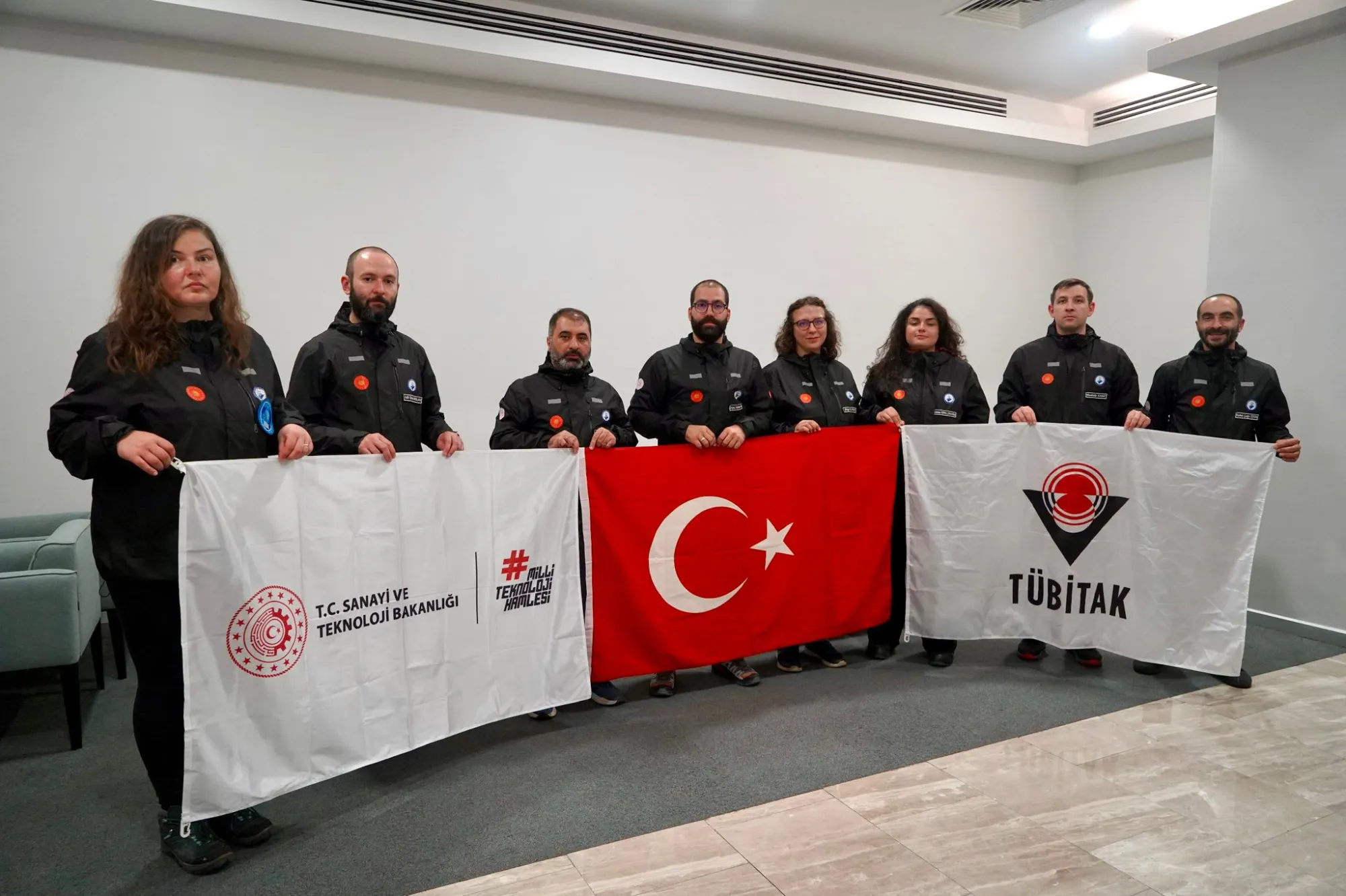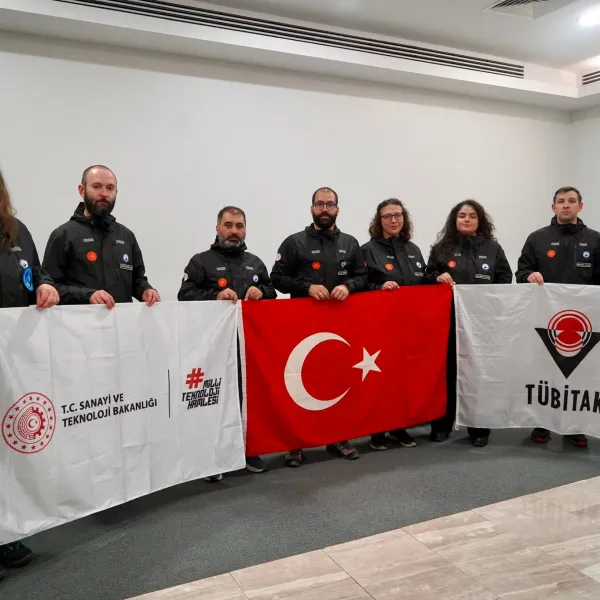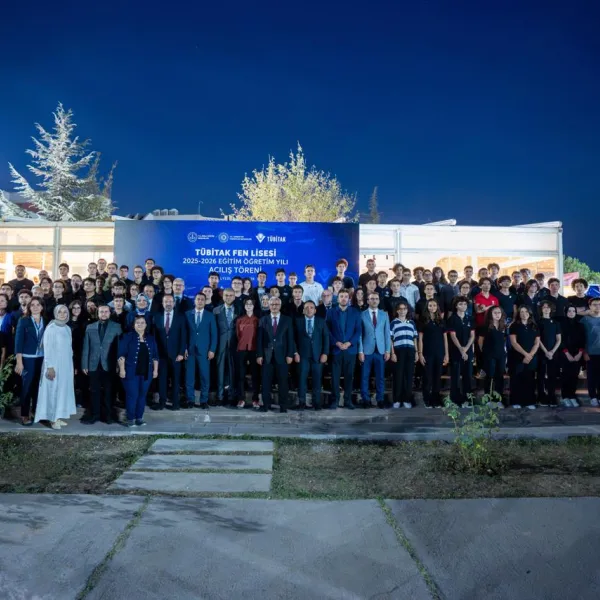
Between 8 and 31 July 2025, a total of 12 researchers, including 9 Turkish and 3 foreign researchers, conducted significant scientific studies in the Arctic Ocean and its surrounding areas. Researchers from Argentina, Bulgaria and Ecuador also contributed to the scientific studies.
19 Projects, 12 Researchers, 3 High School Students
During the expedition, a total of 19 scientific projects were carried out, primarily in the fields of oceanography, biology, chemistry, atmospheric science, meteorology, and satellite systems. The work was conducted by an expedition team consisting of 5 women and 7 men. The expedition successfully completed a route of over three thousand nautical miles, covering 70 scientific sampling stations designated in the Arctic Ocean.
TASE V also hosted young scientists this year. Three high school students, selected from among the winners of the TÜBİTAK 2204-C and 2204-D High School Student Research Projects Competitions, had the opportunity to test the projects they developed under Arctic conditions.
Scientific Observations: Atmosphere, Microplastics, CTD Profiles
Within the scope of the research, the following activities were carried out in the Arctic Ocean: analysis of seawater properties along CTD profiles, surface temperature and salinity measurements, water and sediment sampling, microplastic analysis, monitoring of atmospheric processes using GNSS data, and observation of meteorological variables on regional and temporal scales.
TASE V also involved researchers from 2 public institutions, 5 universities, and 3 high schools.
Turkey's Polar Vision is Strengthening
The Arctic Region, which is directly related to many fields such as global climate change, marine sciences, life sciences, and meteorology, is of strategic importance in Turkey's scientific diplomacy and sustainability policies.
The National Arctic Scientific Research Expeditions, organised under the coordination of TÜBİTAK MAM KARE, aim to strengthen our country's scientific capacity in the polar regions and increase international scientific cooperation. In this context, the expeditions regularly conducted in the Arctic are making Turkey's scientific presence more visible on a global scale.





